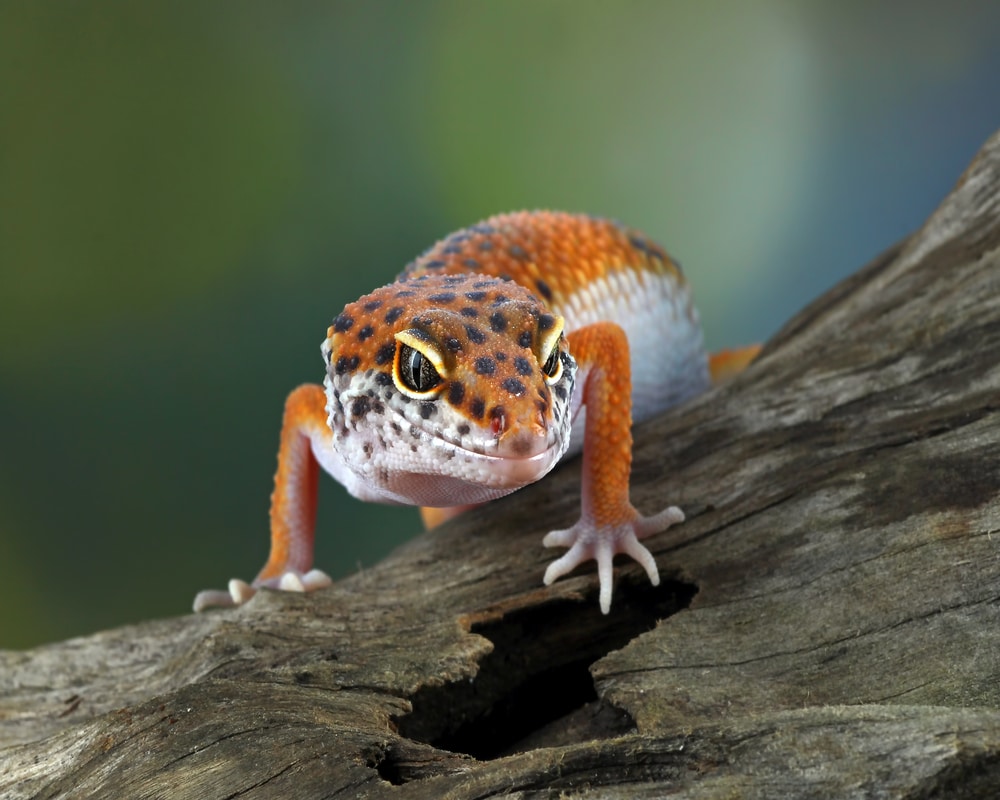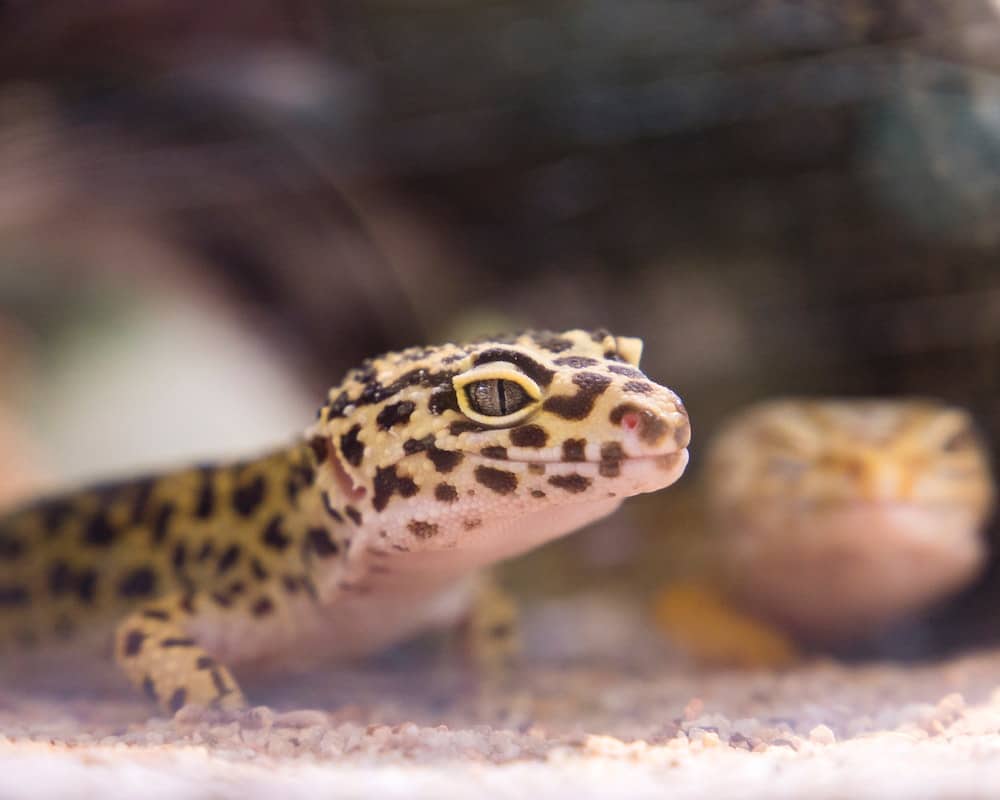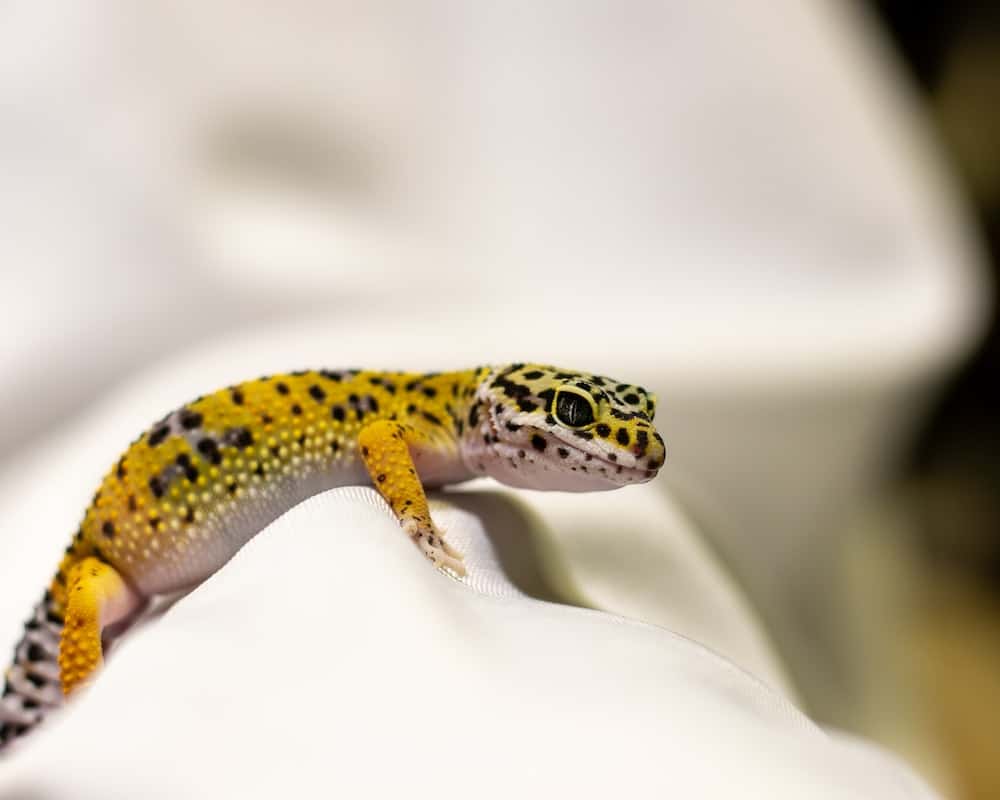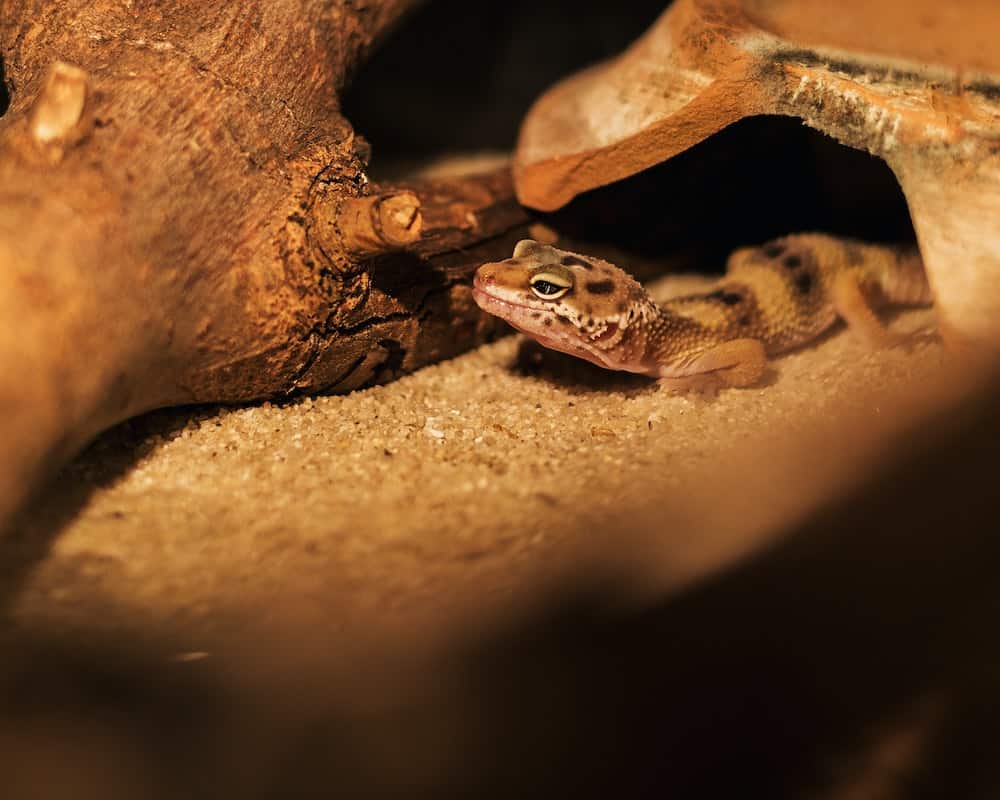If you have ever heard a Leopard Gecko Chirping away you might be wondering what it means. Well, fear not! We’re here to unravel this adorable mystery for you.
Leopard geckos may chirp or make clicking sounds, and some owners believe that these sounds are connected with happiness, enjoyment, and overall pleasure. They might produce these sounds while roaming around their tank or during feeding time.
By understanding the meanings behind these vocalizations we can gain valuable insights into the world of these captivating creatures. So next time you hear those charming chirps remember that your gecko is simply trying to tell you something. Embrace this fascinating aspect of your gecko’s behavior and enjoy the special bond you share with your chirping buddy.
Leopard Gecko Behavior And Communication
Leopard gecko behavior and communication involve a range of actions and signals that provide insight into their physical and emotional states.
As nocturnal creatures leopard geckos exhibit distinct behaviors during the day and night.
Basking And Hiding
During the day leopard geckos are often found hiding in their shelters, rock crevices, or burrows to avoid direct sunlight and conserve energy. At night they become more active exploring their surroundings and seeking food.
Tail Wagging
Leopard geckos sometimes wag their tails when they are excited or hunting prey. This behavior is particularly common in juveniles but may diminish with age.
Chirping And Clicking
Occasionally leopard geckos may produce chirping or clicking sounds. While the exact purpose of these vocalizations is not fully understood some owners speculate that they may be related to happiness or communication.
However further research is needed to confirm these interpretations.
Body Language
Like many reptiles leopard geckos use body language to communicate. For instance, when threatened, they may flatten their bodies, open their mouths, or hiss as a warning sign.
Conversely, they may display relaxed body postures when feeling safe and content.
Tail Loss (Autotomy)
When facing a perceived threat the leopard geckos can drop their tails as a defense mechanism. The detached tail continues to wriggle, potentially distracting the predator while the gecko escapes.
Over time the tail regenerates but often with a different appearance.
Licking And Smelling
Leopard geckos have a unique way of exploring their environment. They use their tongues to lick surfaces gathering scent particles which they then bring to a specialized olfactory organ called Jacobson’s organ.
This process helps them understand their surroundings and identify potential mates.
Feeding Behavior
During feeding leopard geckos may exhibit excitement and increased activity. They use their keen sense of smell and excellent vision to detect and catch prey items like insects.
Courtship And Mating
When approaching breeding season, male leopard geckos may display courtship behaviors such as head bobbing and tail waving to attract females. Successful courtship leads to mating and females lay eggs after successful copulation.

Discovering Leopard Gecko Chirping
Historically researchers and pet owners have noted the occurrence of chirping sounds in leopard geckos. These initial observations led to curiosity and the desire to study this behavior more closely.
Studies were conducted both in captivity and in the wild to gain a comprehensive understanding of this unique vocalization.
Comparing chirping behavior between wild and captive leopard geckos revealed interesting insights into how their environment might influence vocalizations. The findings indicated that chirping might serve various purposes including communication in reproductive contexts, territorial displays, and responses to stress or distress.
Top 6 Reasons Why Leopard Geckos Chirp
Leopard geckos may chirp or make clicking sounds for various reasons and understanding these vocalizations can provide valuable insights into their wellbeing and needs.
Reason 1: Expressing Contentment
Some leopard geckos may chirp or make clicking sounds when they are feeling content and happy. Though not all geckos exhibit this behavior some owners have reported observing their geckos chirping while roaming around their enclosure or during moments of relaxation.
While the exact reason for this behavior is not entirely understood some interpret it as a positive indication of their gecko’s emotional state.
Reason 2: Incorrect Handling
Improper handling of leopard geckos can lead to stress and discomfort which may manifest in vocalizations such as chirping. Leopard geckos are generally solitary and prefer minimal human interaction.
When they are handled too frequently, too roughly, or without giving them time to adjust to their environment they may become stressed and use chirping as a way to communicate their discomfort.
Reason 3: Mating Calls
During the breeding season, male leopard geckos may use chirping or clicking as part of their courtship behavior to attract females. They may engage in head bobbing, tail waving, and vocalizations to communicate their readiness to mate.
These mating calls are a vital part of their reproductive communication and can be quite distinct and repetitive.
Reason 4: Unhappiness Or Stress
Chirping in leopard geckos can also be a sign of unhappiness or stress. Various factors can contribute to their stress such as sudden changes in their environment, exposure to excessive noise or bright lights, inappropriate temperature or humidity levels or the presence of other animals that may be causing them distress.
Chirping in such situations can be a way for them to express their discomfort or unease.
Reason 5: Hunger
Chirping behavior in leopard geckos can be linked to their feeding routine. Some geckos may chirp in excitement or anticipation of being fed.
Their keen sense of smell and excellent vision help them detect food and chirping could be their way of signaling their eagerness to eat.
Reason 6: Feeling Threatened
Leopard geckos may resort to chirping or clicking when they feel threatened. It can be a defensive behavior to warn potential predators or competitors to stay away.
Along with vocalizations, they may exhibit other defensive postures, such as flattening their bodies, opening their mouths, or hissing to deter any perceived threats.

How To Understand The Reason Behind The Leopard Gecko Chirping?
Understanding the reason behind your leopard gecko’s chirps involves careful observation and consideration of various factors. Here are steps to help you interpret their vocalizations:
Contextual Observation
Pay attention to the circumstances surrounding the chirping. Note the time of day, the gecko’s behavior before and after chirping, and any changes in their environment.
Accompanying Body Language
Observe the gecko’s body language while chirping. Are they displaying any signs of distress, excitement, or relaxation? Consider their posture, tail movement, and whether they seem alert or agitated.
Handling And Interaction
Evaluate the gecko’s interaction with its environment and with you as the owner. Determine if any recent handling sessions may have caused stress or if they are showing signs of discomfort during interactions.
Environmental Factors
Assess the gecko’s enclosure for any potential stressors. Ensure that the temperature, humidity levels, and lighting are appropriate for leopard geckos. Avoid loud noises or sudden changes that may trigger anxiety.
Feeding Behavior
Observe their response during feeding time. Do they chirp when they see food or are they chirping after being fed? This can help determine if the vocalization is linked to hunger or excitement about food.
Reproductive Season
If it’s breeding season chirping may indicate that the gecko is responding to mating calls or displaying courtship behavior. Note if any other geckos are present in the enclosure as this could influence their vocalizations.
Recording The Chirps
If possible, record the chirping sounds to analyze them later or share them with experienced reptile enthusiasts, herpetologists, or veterinarians for their input.
Research And Consultation
Look for reputable resources on leopard gecko behavior and communication. Join online forums or social media groups where other leopard gecko owners share their experiences. A good online forum is Reptileforums.co.uk, this is a popular forum and they have some excellent content.
Seeking advice from experienced reptile enthusiasts or veterinarians can also provide valuable insights.
Remember that individual leopard geckos may have unique personalities, and not all geckos chirp for the same reasons. Be patient and attentive to your gecko’s behavior over time to develop a deeper understanding of their vocalizations.
Conclusion
In conclusion, leopard gecko chirping is a complex and multifaceted behavior that holds significance for their communication, reproduction, and well-being.
Further research and conservation efforts are necessary to preserve the unique behaviors and natural habitats of these fascinating creatures. By understanding and appreciating their chirping behavior we can contribute to their overall welfare and conservation in the wild and in captivity.




